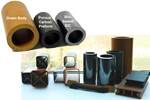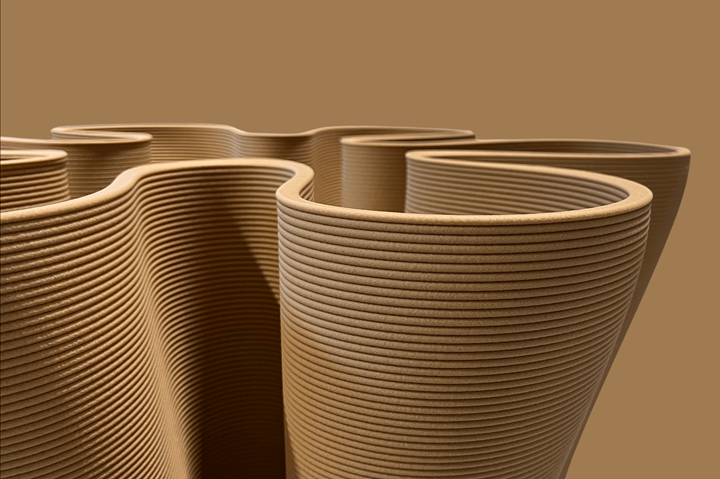Sulapac introduces Sulapac Flow 1.7 to replace PLA, ABS and PP in FDM, FGF
Available as filament and granules for extrusion, new wood composite matches properties yet is compostable, eliminates microplastics and reduces carbon footprint.
Sulapac (Helskinki, Finland), founded in 2016, has developed a portfolio of materials as solutions to the global plastics crisis. These include wood composites — wood fibers from industrial side streams mixed with biodegradable biopolymers — as well as other bio-based materials which can be recycled and include recycled content.
Characteristics all Sulapac materials share include:
- No permanent microplastic: They can be digested by naturally occurring microorganisms and don’t have adverse, long-term effects on the environment;
- Industrially compostable: Most material grades are certified by Seedling (EN 13432) or BPI (ASTM D6400);
- Sustainably sourced: Raw materials prioritize recycled content and feedstock from industrial and agricultural side streams;
- Mass-producible: The materials are processable with existing plastic converting machinery.
These materials have been tested by 100+ converters worldwide and proven to work in existing equipment for injection molding, extrusion, thermoforming and 3D printing. Their use in large-scale 3D printing in particular is rapidly growing, with a recent collaborating with Swedish 3D printing expert The Industry (Malmö), which will start offering the patented bio-based and recyclable Sulapac materials for its customers.
Manufacturing with The Industry’s next-generation 3D printers is reported to be a highly efficient process that eliminates production waste, minimizes energy consumption and allows flexible, localized, on-demand production. Choosing sustainable Sulapac as the printing material over conventional plastic can reduce customers’ environmental footprint even further.
In addition to requirements for environmental responsibility, the materials selected for The Industry’s material library must fulfill strictly defined technical criteria. The Sulapac Flow 1.7 wood composite, and Sulapac Universal Heat 30, a bio-based material with good heat endurance and the ability to stand high pressure, have shown promise in comprehensive testing conducted by The Industry, both in terms of mechanical properties and processability.
“In our experience, modern businesses are constantly searching for new materials that can convey a premium look and feel,” Jonas Carlsson, CEO of The Industry Sweden, says. “After running multiple tests on our Magnum printer, we can say without a doubt that Sulapac managed to live up to the expectations and we can only foresee a positive increase in demand for their materials across various industries working with additive manufacturing technologies.”
The collaboration adds to Sulapac’s work with thermoplastic semi-finished products manufacturer GEHR (Mannheim, Germany) that was the first company to launch a 3D printing filament made of Sulapac Flow, primarily serving cosmetic companies who are interested in sustainable prototyping, for example.
Sulapac Flow 1.7 and Universal Heat 30, both food contact-compliant and industrially compostable certified, are now among the recommended feedstock materials for Magnum printers. Companies can also order products printed from Sulapac.
Sulapac says its materials can be used in 3D-printed furniture, prototypes, machine parts and design items, for example. Sulapac Universal Heat finds additional applications, including industrial molds for die-casting, cement casting, die molding and pressure molding.
Related Content
-
Large-format 3D printing enables toolless, rapid production for AUVs
Dive Technologies started by 3D printing prototypes of its composite autonomous underwater vehicles, but AM became the solution for customizable, toolless production.
-
Combining multifunctional thermoplastic composites, additive manufacturing for next-gen airframe structures
The DOMMINIO project combines AFP with 3D printed gyroid cores, embedded SHM sensors and smart materials for induction-driven disassembly of parts at end of life.
-
Plant tour: Spirit AeroSystems, Belfast, Northern Ireland, U.K.
Purpose-built facility employs resin transfer infusion (RTI) and assembly technology to manufacture today’s composite A220 wings, and prepares for future new programs and production ramp-ups.

















